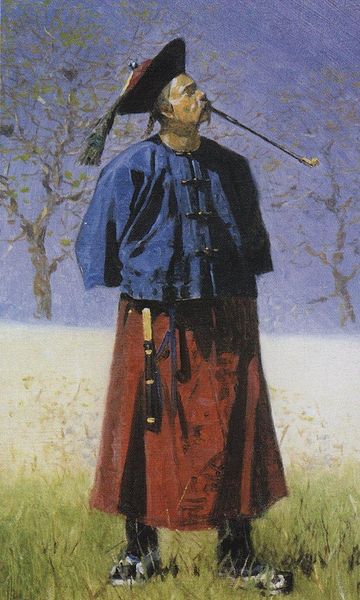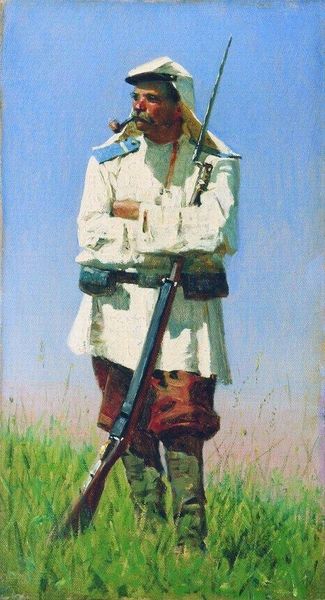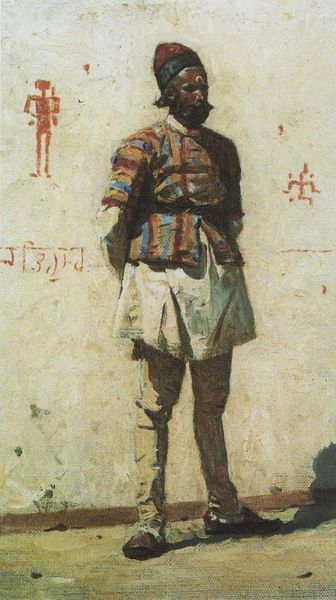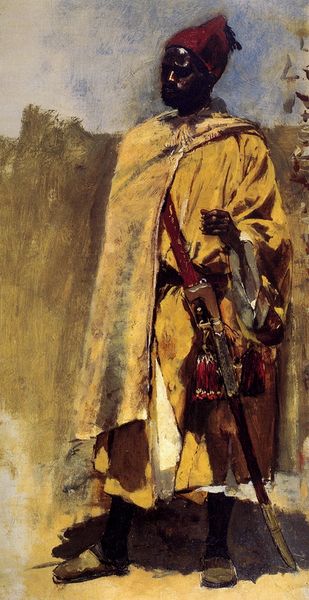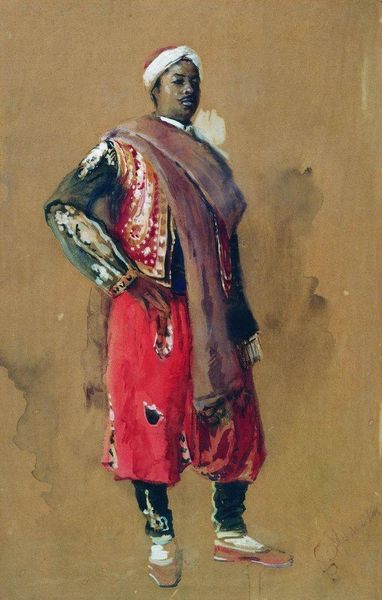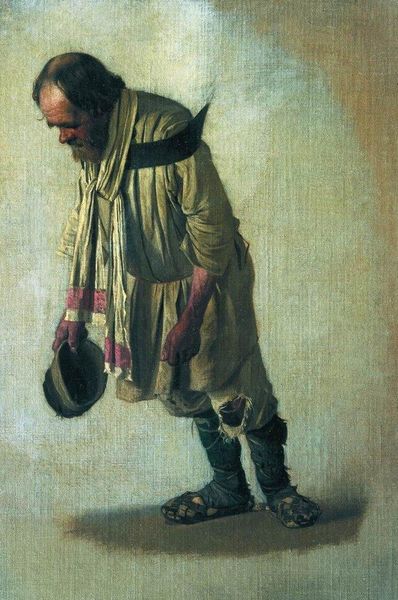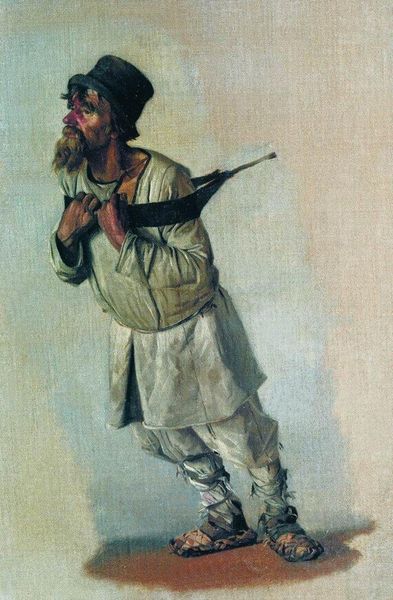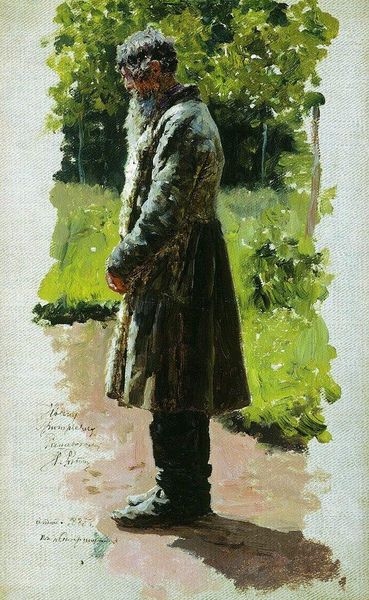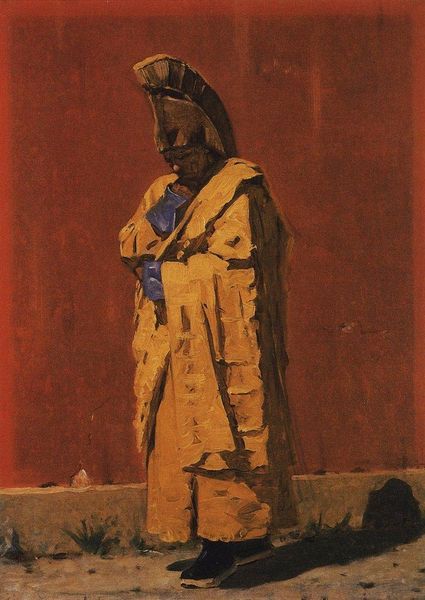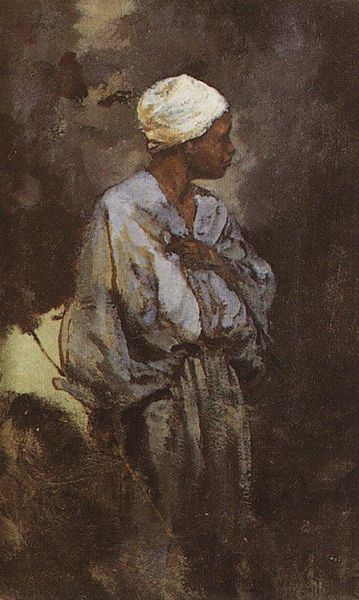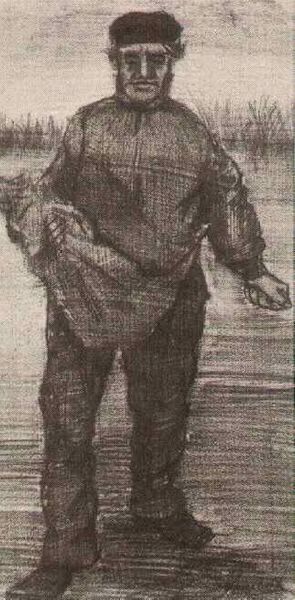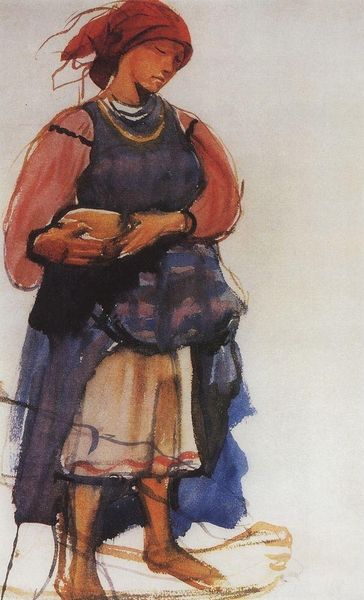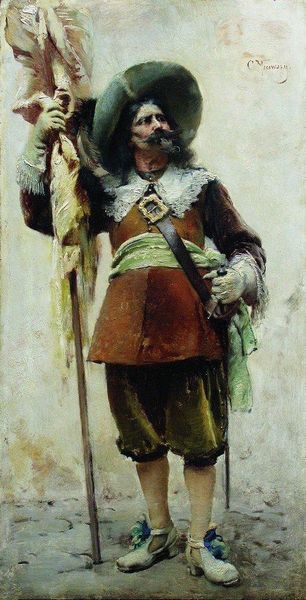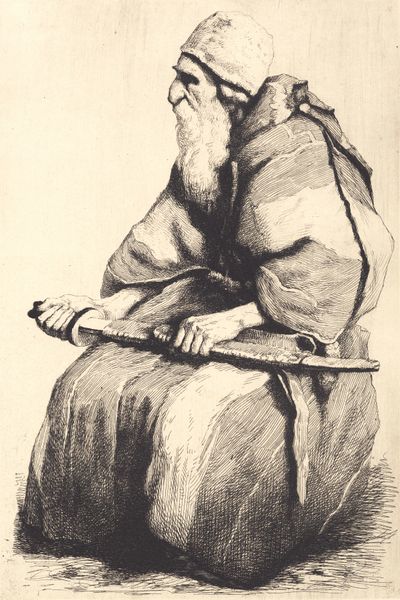
Copyright: Public domain
Editor: This is Vasily Vereshchagin’s oil painting, "Turkestan Officer, when there will no campaign," from 1873. He looks… defeated, somehow. What stands out to you when you look at this piece? Curator: The apparent stillness is deceiving. I see a poignant commentary on the psychological toll of colonialism, reflected in the officer's posture and the title itself. Vereshchagin, unlike many of his contemporaries, offers a critique of imperial power, doesn't he? This officer, removed from active duty, isn't valorized; he's rendered listless, perhaps even burdened. What do you think that might suggest about Vereshchagin's views on military campaigns more generally? Editor: I guess it makes sense. He doesn’t seem heroic or anything. You said colonialism…was Turkestan under Russian rule then? Curator: Precisely. Russia was actively expanding into Central Asia during this period. The "campaign" implies military action and the subjugation of local populations. Notice how the officer's gaze is averted. Is that shame? Resignation? The artist compels us to consider the human cost – for both the colonizer and the colonized. Do you feel a sense of the cultural context influencing his choices as an artist? Editor: Definitely, especially knowing more about the history. His paintings must have made people think. Curator: And that's where its power lies. Vereshchagin forces a reckoning with the human consequences of power and military expansion. That muted palette – the dust and bleached landscape - speaks volumes. Ultimately it connects to a tradition of activism that links power to oppression and resistance, not glory. Editor: I hadn't considered the social critique. I was focused on the individual sadness of the figure. I’ll never look at this the same way. Curator: And hopefully, you’ll consider that connection when examining all artwork.
Comments
No comments
Be the first to comment and join the conversation on the ultimate creative platform.
